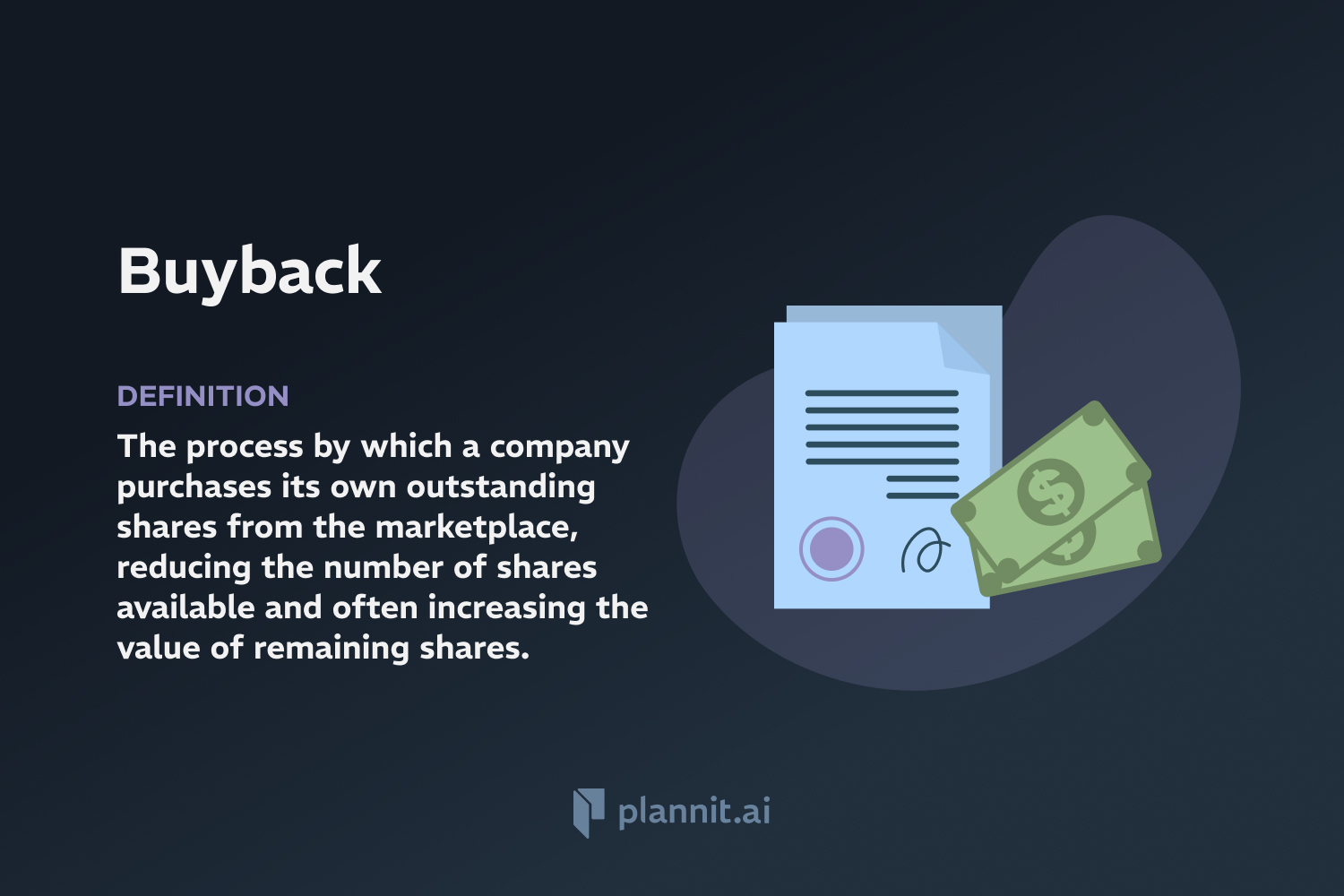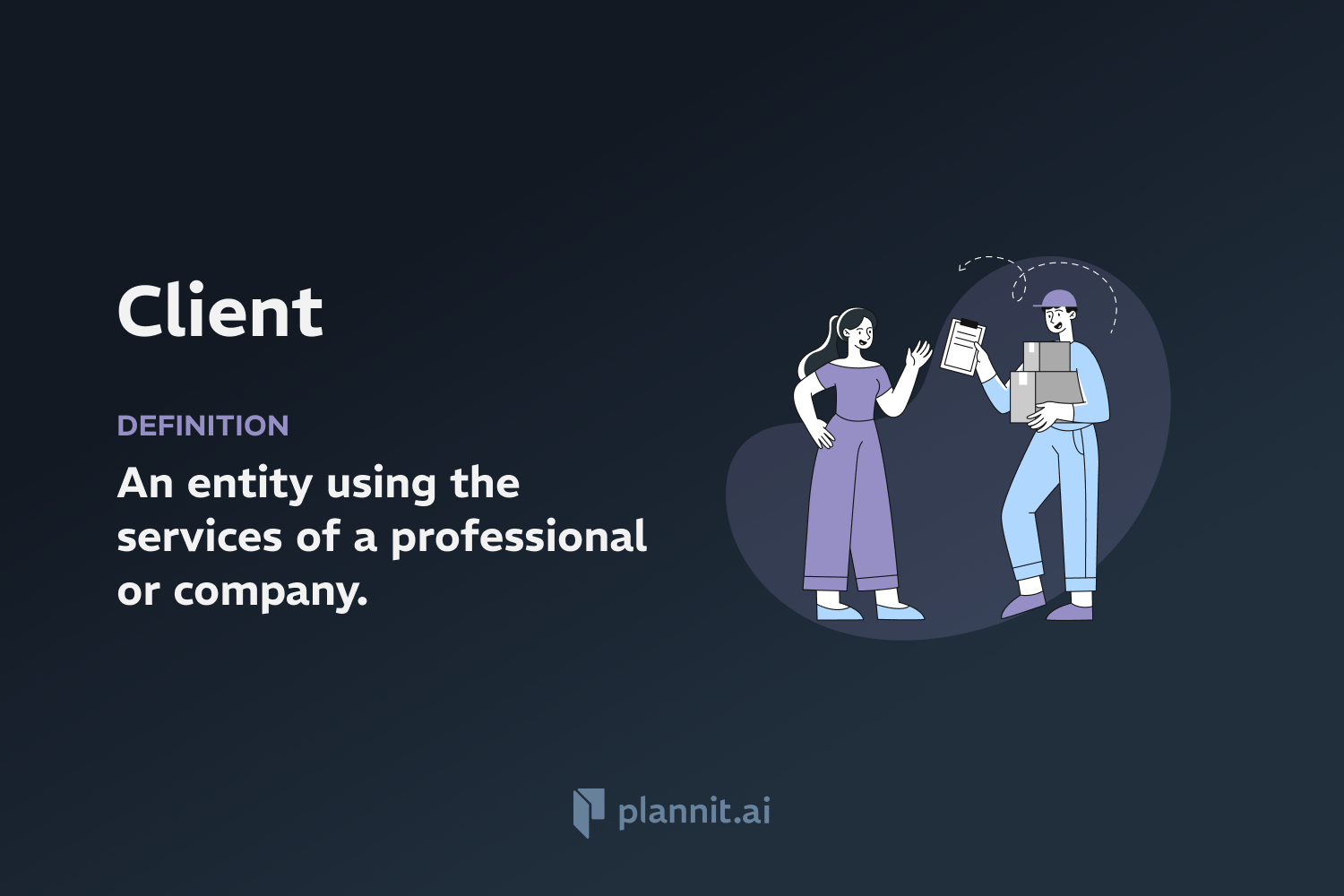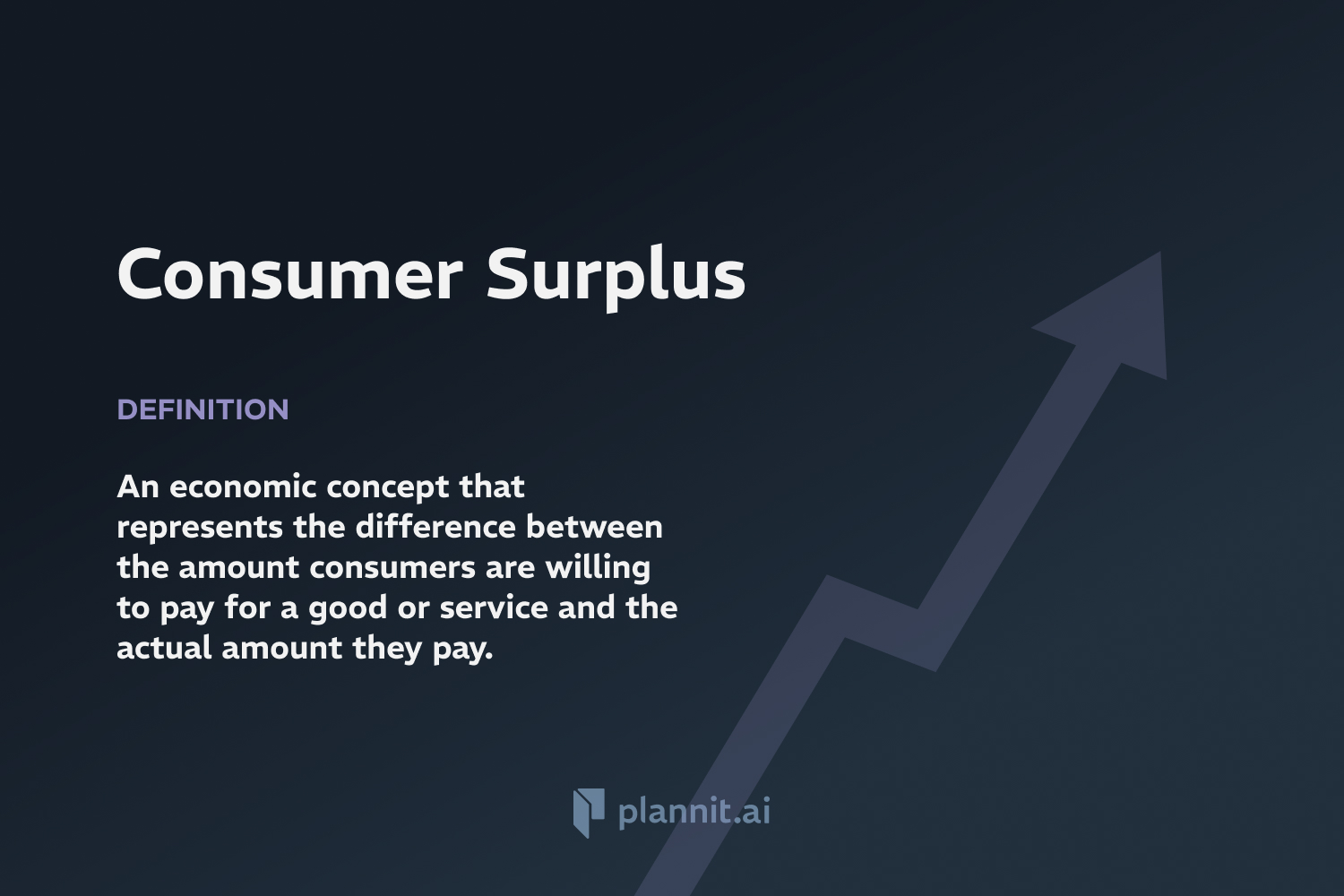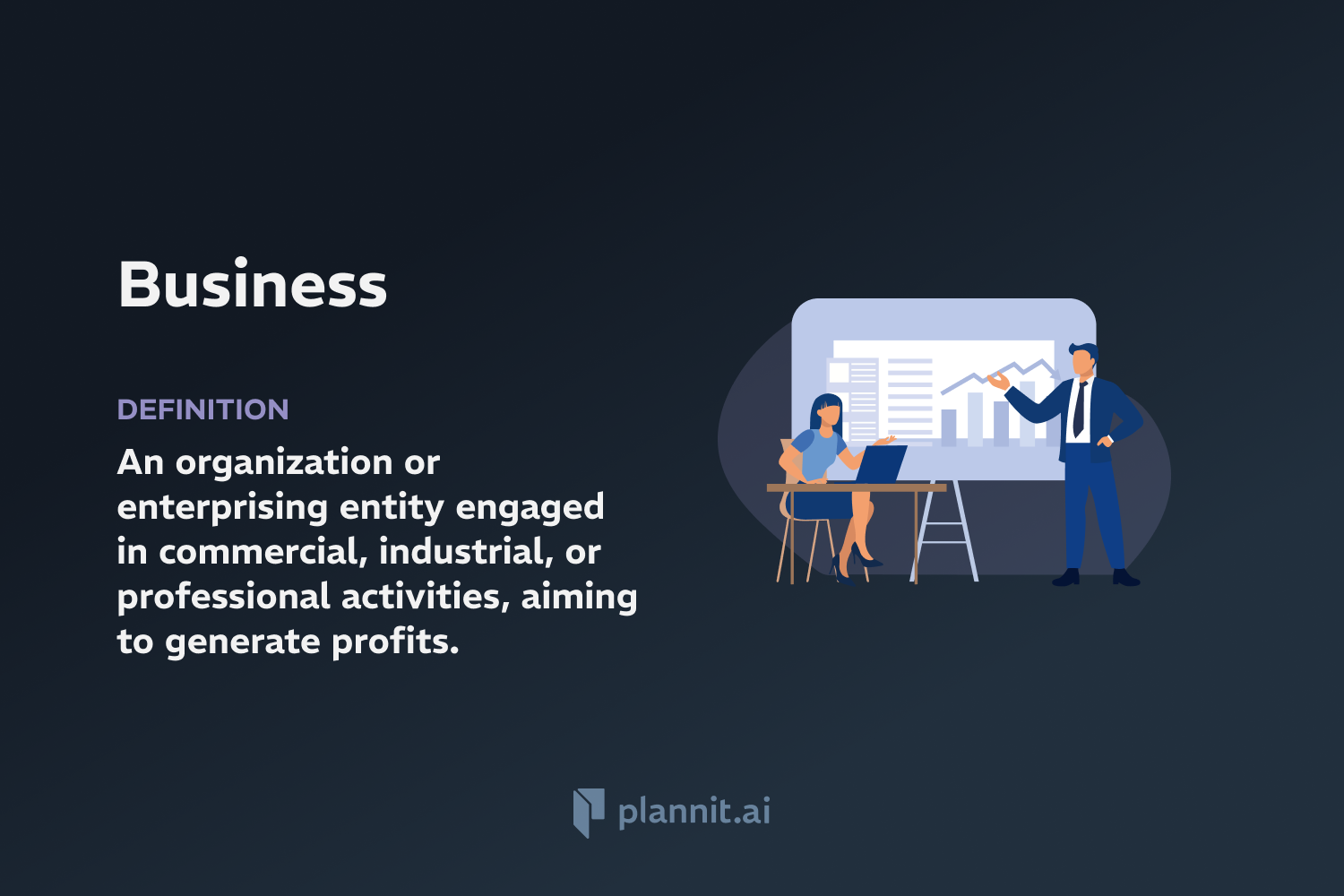Need Help With Your Business Plan?
Answer tailored questions and get a detailed business plan in minutes.
Buyback: Definition & In-Depth Explanation

Definition:
A Buyback, also known as a share repurchase, is a corporate action in which a company buys back its own shares from the marketplace. This action reduces the overall number of shares available in the open market, which can increase the value of remaining shares, improve financial ratios, and offer additional returns to shareholders.
Context of Use:
Buybacks are commonly used in the financial management of companies across various industries, especially when the company's leadership believes the shares are undervalued or when they wish to improve shareholder value by reducing the supply of shares.
Purpose:
The main purposes of a buyback include increasing the value of remaining shares, consolidating ownership, improving financial ratios (like earnings per share), and providing an additional way to return capital to shareholders.
Example:
Market Perception: A company might initiate a buyback to signal confidence in its own financial health, suggesting to the market that its current stock price is lower than its true value.
Excess Cash: Companies with excess cash reserves might opt for a buyback as a method to return value to shareholders, especially if other investment opportunities are not as attractive.
Related Terms:
Treasury Stock: Shares that were once part of the outstanding shares but were bought back and are held by the issuing company.
Dividend: A direct payment made by a company to its shareholders, usually as a distribution of profits.
Earnings Per Share (EPS): An indicator of a company’s profitability calculated as net income divided by the number of outstanding shares.
FAQs:
1. How does a buyback affect share price?
A: By reducing the supply of shares in the market, a buyback often increases the share price, assuming demand remains constant, due to the perception of increased value and company strength.
2. What are the tax implications of a buyback?
A: For shareholders, buybacks can be more tax-efficient than dividends as the gains from an increased share price are realized only when shares are sold, potentially at a more favorable capital gains tax rate.
3. Why might a company prefer a buyback over paying dividends?
A: Companies might prefer buybacks as they provide flexibility in managing capital and can be used strategically to adjust the capital structure without the commitment of regular dividend payments.
4. Can a buyback be seen negatively?
A: While generally positive, buybacks can be viewed negatively if it appears that the company is trying to manipulate earnings per share or if it uses debt to finance the buyback, potentially jeopardizing its financial stability.
5. How is a buyback executed?
A: A buyback can be executed through open market purchases over time, a tender offer where the company offers to buy shares at a specific price for a certain period, or through direct negotiation with large shareholders.
Get funding with a business plan that will impress investors.
Starting a New Business?



